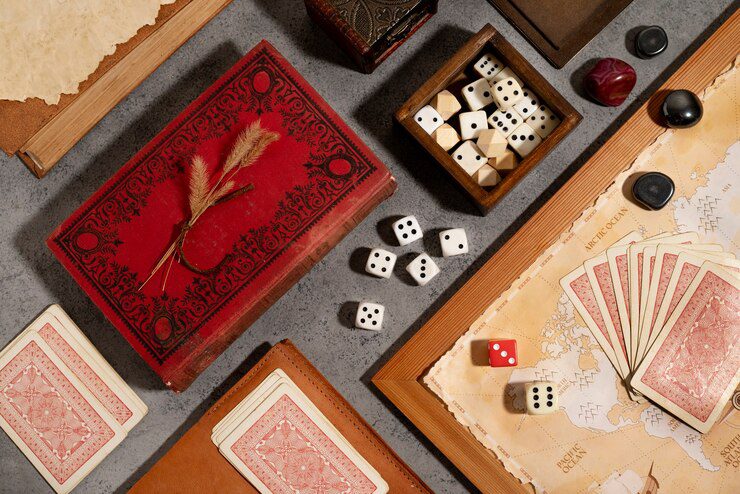Gather around the table, fellow game enthusiasts! Today, we embark on a captivating journey through time, exploring the fascinating evolution of board games. From the simple roll of the dice in ancient Egypt to the strategic intricacies of modern classics, board games have served as a powerful tool for entertainment, connection, and even education for millennia.
Let’s roll the dice and delve into the rich history of board games!
The Ancient Origins of Board Games: A Legacy of Dice and Strategy
The roots of board games stretch back centuries, with evidence suggesting their existence in ancient civilizations around the world. The Royal Game of Ur, discovered in Mesopotamia and dating back to 3,000 BC, is considered one of the oldest board games ever unearthed. In ancient Egypt, Senet, a game involving strategy and a bit of luck, was a popular pastime enjoyed by both royalty and commoners.
These early games often served multiple purposes. They were a source of entertainment, a way to test strategic thinking, and even a tool for religious ceremonies. The debate between classic games vs. modern games highlights the timeless appeal of nostalgic gameplay and the innovative features of contemporary gaming.
Fast forward to the Roman Empire, and we find games like Ludus Latrunculorum, an ancestor of chess, challenging the minds of Roman citizens. Board games continued to evolve throughout the Middle Ages, with games like Backgammon emerging and gaining popularity across Europe.
The Rise of Modern Board Games: From Monopoly to Family Fun
The evolution of board games took a significant leap in the 19th century with the invention of printing presses. This allowed for mass production of games, making them more accessible to the general public. Monopoly, perhaps the most iconic board game of the 20th century, was first created in 1903.
While Monopoly may not be known for its strategic depth, it captured the hearts (and competitive spirits) of families around the world. This era also saw the rise of classic games like Scrabble, Risk, and Clue, solidifying the place of board games in family entertainment nights.
A New Era Dawns: The Rise of Strategy and Complexity
The latter half of the 20th century witnessed a remarkable shift in the evolution of board games. Games like Diplomacy, released in 1959, introduced a new level of complexity and player interaction, requiring negotiation, betrayal, and strategic alliances.
This trend continued with the release of the legendary wargame Axis & Allies in 1984, which offered a historically accurate and strategic simulation of World War II. These games appealed to a new generation of gamers seeking a more challenging and intellectually stimulating experience.
The 1990s ushered in the golden age of Eurogames, a category emphasizing strategy, resource management, and player interaction rather than direct competition. Games like The Settlers of Catan, released in 1995, revolutionized the industry, showcasing the potential for board games to be both strategic and deeply engaging.
The Modern Landscape: Diversity, Innovation, and Community
Today, the evolution of board games continues at a breakneck pace. The industry is booming, with Kickstarter and other crowdfunding platforms allowing innovative designers to bring their creations to life.
The rise of cooperative games, where players work together to achieve a common goal, have become increasingly popular. Solo board games, catering to the single player experience, are also gaining traction. This explosion of diversity ensures there’s a perfect board game for every taste and interest.
The rise of online platforms and communities has further fueled the passion for board games. Online retailers and review sites offer easy access to a vast array of games, while online forums and communities allow gamers to connect, share strategies, and discuss their latest favorites.
Conclusion
The evolution of board games is a testament to the enduring power of human ingenuity and our desire for connection and playful competition. From the simple games of our ancestors to the complex strategic masterpieces of today, board games continue to bring people together, spark creativity, and provide countless hours of entertainment.
So, gather your friends and family, dust off that old game cabinet, or explore the exciting world of modern board games. The next chapter in the evolution of board games is waiting to be written, and who knows, you might just discover your new favorite pastime!







